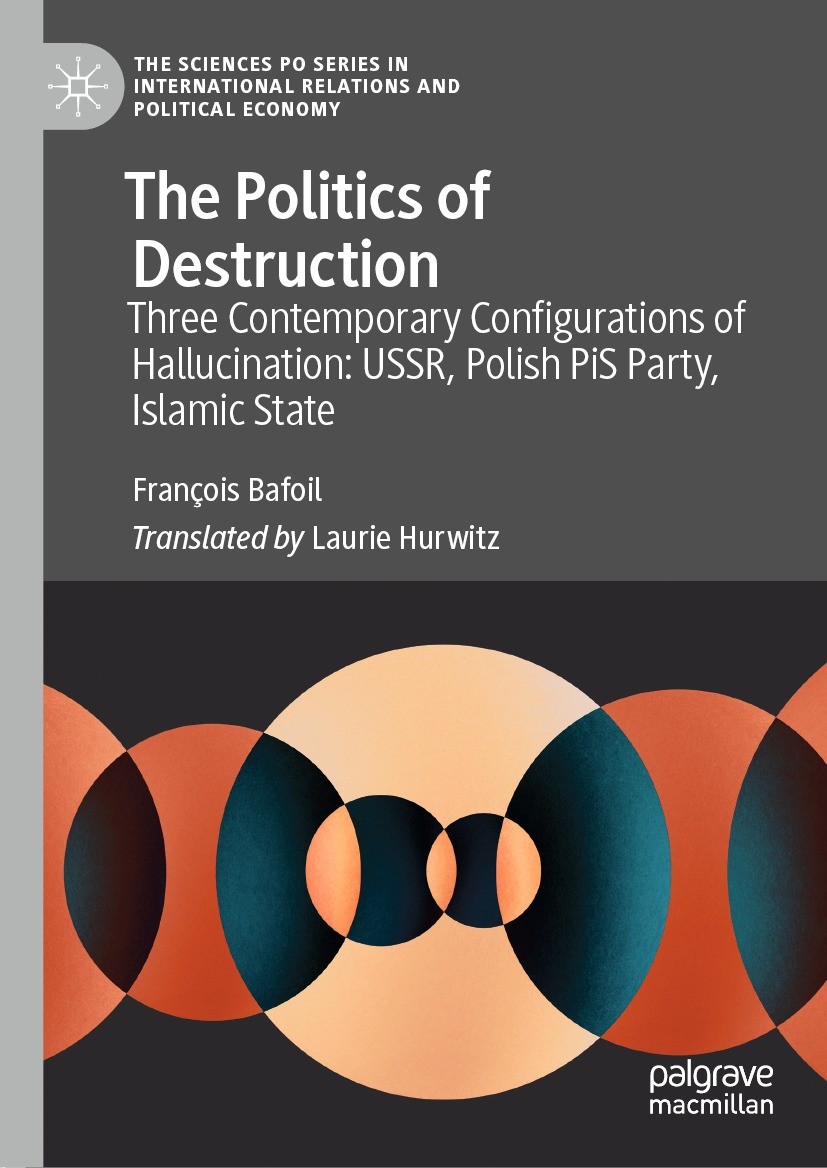| 书目名称 | The Politics of Destruction |
| 副标题 | Three Contemporary C |
| 编辑 | François Bafoil |
| 视频video | http://file.papertrans.cn/918/917056/917056.mp4 |
| 概述 | Offers a unique comparison of Weberian and Freudian concepts as related to current political events.Explores the role of the unconscious and feelings in political science.Offers a unique mix of discip |
| 丛书名称 | The Sciences Po Series in International Relations and Political Economy |
| 图书封面 |  |
| 描述 | When applied to social science, psychoanalytic concepts make it possible to analyze totalitarian action and its derivative, authoritarian action, by highlighting what such regimes have in common: the destruction of frames of reference for space and time; their replacement of those reference points with a restrictive “surreality”; and the assignation of individuals in the social space in terms of the love or hatred attributed to them by those in power. Whether in Stalinist Bolshevism, posited here as the matrix of the “totalitarian personality”; in its extreme form of totalitarianism with the Islamic State; or in a more diluted variant in the Polish ruling party ‘Law and Justice’ (PiS), each is characterized by the negation of temporal and spatial distance, and therefore by the negation of causal links, displacement and transformation of experience. These components are specific to the unconscious which, in dreams as Freud considered, acts upon factual datum, denies it, and reproduces it in another way, one that conforms more closely to the dreamer’s desires. For this reason, the politics that arise from these regimes have much in common with a hallucination. |
| 出版日期 | Book 2021 |
| 关键词 | Totalitarianism; Nationalism; Authoritarian regime; Public policies; Political extremism |
| 版次 | 1 |
| doi | https://doi.org/10.1007/978-3-030-81942-2 |
| isbn_ebook | 978-3-030-81942-2Series ISSN 2945-607X Series E-ISSN 2945-6088 |
| issn_series | 2945-607X |
| copyright | The Editor(s) (if applicable) and The Author(s), under exclusive license to Springer Nature Switzerl |
 |Archiver|手机版|小黑屋|
派博传思国际
( 京公网安备110108008328)
GMT+8, 2026-2-7 10:53
|Archiver|手机版|小黑屋|
派博传思国际
( 京公网安备110108008328)
GMT+8, 2026-2-7 10:53


